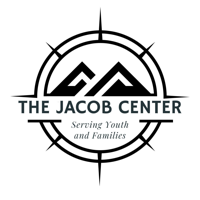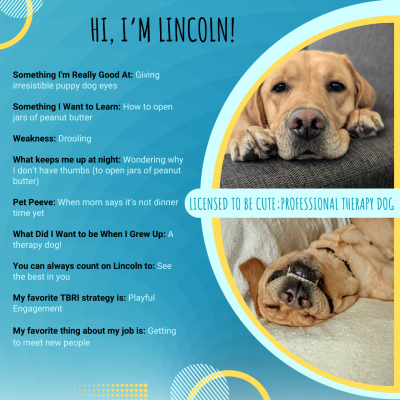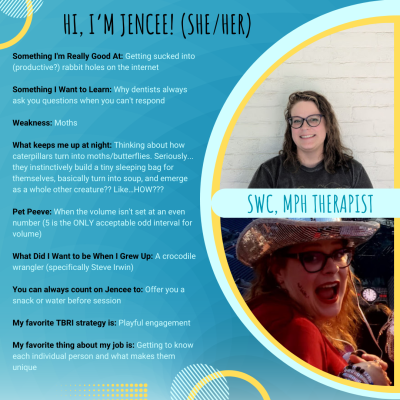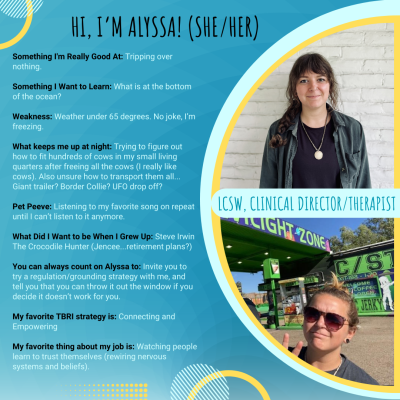Trauma integration and healing does not happen in a silo. It happens relationally, from the inside out. Creating an environment of felt safety is crucial to the therapeutic process; it paves the way for a deeper therapeutic alliance and enables clients to engage more fully in the process. Each person already possesses their own innate strengths, wisdom, and resilience, and when clients feel safe enough to show us these resources, they will inevitably guide the work.
The Jacob Center Counseling Program serves those who have trauma-related concerns and have barriers to care (financial or otherwise). Our approach is rooted in a whole-person, trauma-responsive, and anti-oppressive lens. We support LGBTQ+ and BIPOC clients, and we have Spanish-speaking support staff. We honor and respect each individual’s identity, trauma history, and unique needs.
We see our work as collaborative, advocacy-focused, fluid, and above all, client-driven and responsive to trauma- and neuroscience-informed perspectives. We aim to provide accessible therapy that supports trauma integration and healing while building resiliency and connection.
- Anxiety
- At-Risk Youth
- Behavior Issues
- Generational Trauma
- LGBTQ+
- Self-Esteem
- Stress
- Trauma and/or PTSD
- English
- 6 - 10
- 11 - 13
- 14 - 17
- 18 - 24
- 25 - 64
- 65+
- Adolescents
- Criminal Justice-Involved Individuals
- LGBTQ+
- Neurodiverse
- People Experiencing Homelessness
- People of Color
- People with Low Income
- Refugees
- Young Adults
- ACOA (Adult Children of Alcoholics)
- Abuse
- Adolescent Issues
- Anger Management
- Anxiety
- At-Risk Youth
- Attachment Disorder
- Attention Deficit/Hyperactivity Disorder (ADD/ADHD)
- Behavior Issues
- Blended Families
- Body Size/Image Acceptance
- Caregiving
- Chronic Pain
- Chronic Physical Illness/Health Issues
- Co-Occurring Mental Health Issue and Addiction/Substance Use
- Compassion Fatigue/Burnout
- Depression
- Domestic Violence - Survivors
- Eating Disorders
- Family Issues
- Financial Issues
- Foster Care
- Gender Identity and Expression
- Generational Trauma
- Gifted and Talented
- Grandparents Raising Grandchildren
- Grief/Loss
- Homelessness
- LGBTQ+
- Legal Issues
- Life Transitions
- Medical Trauma
- Panic Attacks
- Parenting
- Performance Anxiety (Sports, Test-Taking, Etc.)
- Poverty
- Racial Identity
- School Issues
- Self-Esteem
- Sexual Abuse
- Sexual Assault
- Sexual Orientation
- Sleep Issues/Insomnia
- Smoking
- Social Skills
- Stress
- Substance Use/Addiction
- Suicidality
- Transgender/Non-binary
- Trauma and/or PTSD
- Women's Issues
- Group Counseling
- Individual Counseling (Outpatient)
- Telehealth/Online Counseling
- WPATH Letter for Gender-Affirming Care
- Animal-Assisted Therapy
- Attachment Therapy
- Brief Intervention
- Brief Therapy
- CBT (Cognitive Behavioral Therapy)
- DBT (Dialectical Behavior Therapy)
- EMDR (Eye Movement Desensitization and Reprocessing)
- Emotional Freedom Techniques
- Harm Reduction
- Mindfulness-Based Stress Reduction (MBSR)
- Motivational Interviewing
- Person-Centered Therapy
- Relational Therapy
- Solution-Focused Therapy
- Strengths-Based
- Cash or Self-Payment
- Credit Cards
- Sliding-Fee Scale (fee based on income and/or other factors)
- Medicaid (Health First Colorado)
- Medicaid (Region 1)-RMHP



